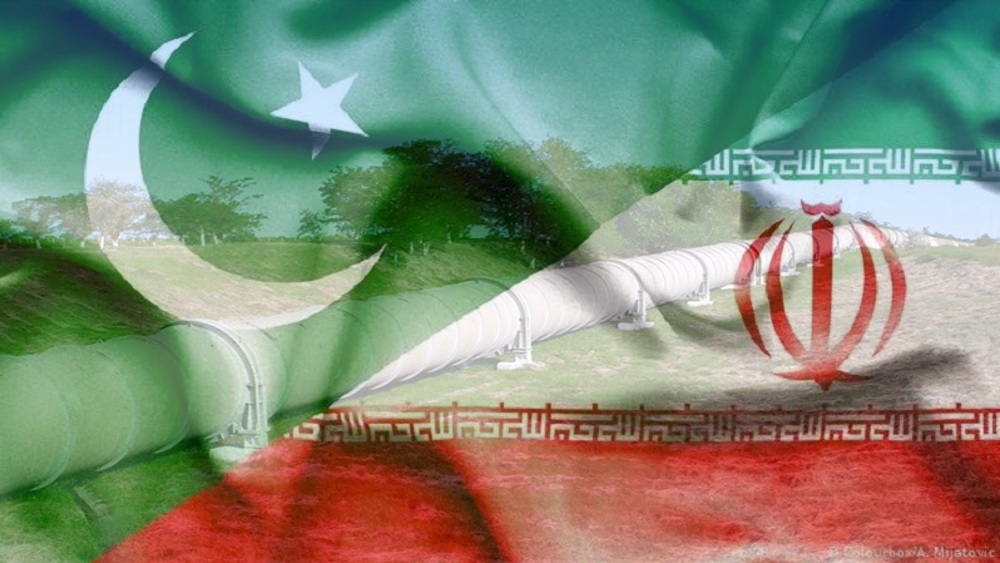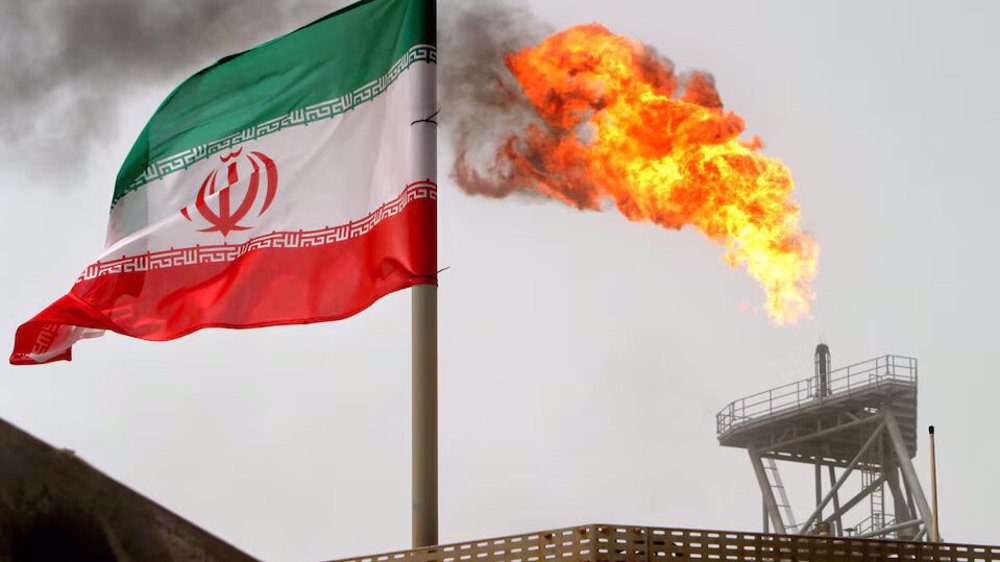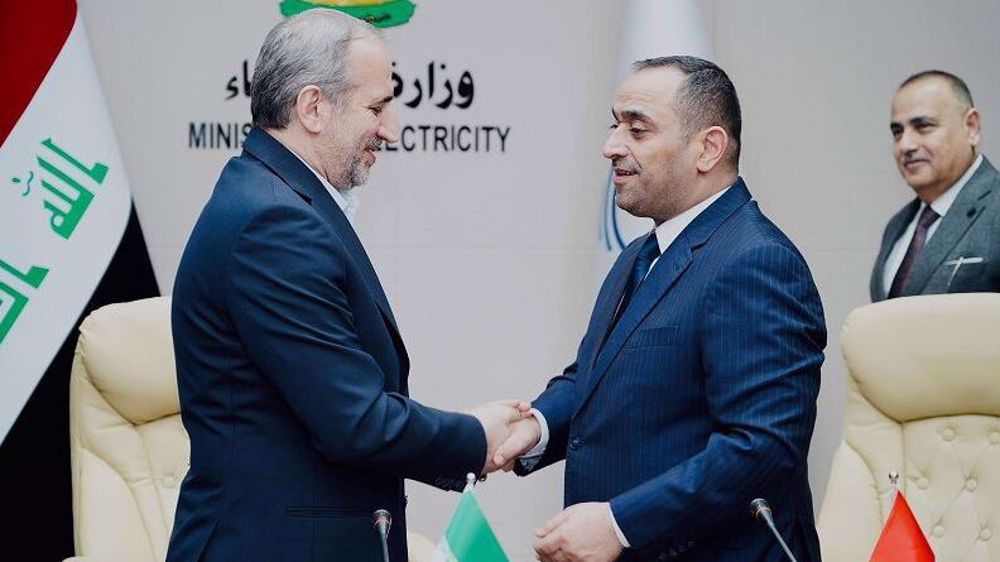Iran: Trump ‘hooliganism’ will not lower oil prices
Iran’s Minister of Petroleum Bijan Zangeneh says there is no spare capacity left for oil producers to pump more, dismissing US President Donald Trump’s pressure on OPEC to ramp up output to bring down prices.
“Trump thinks he can bring down oil prices with hooliganism,” IRNA news agency quoted him as telling an oil and energy conference in Tehran Tuesday.
“None of the producers is capable of producing more. Saudi Arabia is using its reserves and is currently facing a political challenge” in the wake of prominent journalist Jamal Khashoggi’s disappearance, Zangeneh added.
The US president wants the Saudis to boost output to prevent oil prices from spiking ahead of midterm elections, potentially undermining the kingdom’s place among two dozen oil-producing nations which may think Riyadh is doing Washington's bidding at their expense.
“The United States imposes its own conditions on the oil market. They actually stick a needle in their body and then say ‘ouch’, asking others to fix their problems,” Zangeneh said.
“One has to tell them, ‘You don’t need to stick needles in yourselves.’ Remove sanctions and let prices settle down and the market move out of imbalance,” he added.
Zangeneh's remarks came after he met Russian Energy Minister Alexander Novak late Monday in Moscow where the two discussed the market situation and US sanctions on Iran’s oil sector which will go into effect on November 4.
US plan to zero Iran's exports
The market is anxiously watching as Trump plans to impose new sanctions on Iran which is OPEC's third biggest producer.
On Monday, US special envoy for Iran Brian Hook said the United States still aims to cut Iran’s oil sales to zero.
Hook was in Luxembourg to meet European officials, saying he had told them the US goal was for countries to cut imports of Iranian oil to zero as quickly as possible.
"We are working with countries that are reducing their imports to ensure that this happens,” he said.
Iran has said its oil exports cannot be halted because of high demand in the market.
"Stopping Iran’s oil export is impractical,” Iranian Foreign Ministry spokesman Bahram Qassemi told a weekly news conference on Monday. "Certainly, America will not achieve its goal ... our oil exports will continue.”
Vice President Es’haq Jahangiri on Sunday dismissed the impact of looming US sanctions on its economy, saying the current high oil prices should make up for any fall in oil sales.
"One of the things that the US didn't want to happen but did was increase in oil prices. The US president thinks that Saudi Arabia and other countries are capable of preventing oil prices from going up by replacing Iran's oil," he said.
"But you see that even without the sanctions having started, Iran's oil has reached over $80 per barrel. It means that if we export half of what we used to in the past, we will earn as much," Jahangiri said in a speech.
IRNA quoted central bank data as saying that Iran's income from selling crude and oil products in the five months between March 22-August 22 reached 538.8 trillion rials ($12.89 billion), up 62.4% on the year, even though the country sold lower volumes than the preceding one.
Iran's new customers
Jahangiri said that Iran had found ways to work around the looming sanctions.
"The Americans have claimed that they want to bring down Iran's oil exports to zero, but they can't do it because various methods have been found. Private sector and domestic companies have come forward," he said.
The vice president said while some of Iran's oil buyers stopped purchases, the Islamic Republic could find new partners for its oil and was in talks with its traditional customers to find ways to continue the trade.
Oil prices rose on Tuesday amid uncertainties over supplies and geopolitical tensions caused by the disappearance of the Saudi Arabian journalist in Turkey.
Trump threatened "severe punishment" for the kingdom if the journalist is found to have been killed, prompting Saudi officials to say Riyadh would retaliate against any actions taken over the Khashoggi case.
Oil prices rise over uncertain supplies
International benchmark Brent crude for December delivery rose 27 cents, or 0.33 percent, to $81.05 per barrel on Tuesday. US West Texas Intermediate crude for November delivery was up 12 cents at $71.90 a barrel, Reuters reported.
Talk of a return to $100 oil is now becoming frequent as psychological factors are weighing in.
“The market is currently agitated and very worried but this anxiety is not for these days; it is rather for the future. Oil-producing countries are being boycotted one after another, but how long can this situation be sustained? What will be the future of the market?” Zangeneh said.
“Everyone is currently worried because Trump has not been able to convince them” about the existence of sufficient oil in the market and Saudi Arabia’s ability to replace Iranian oil, he added.
Under the circumstances, Zangeneh said Iran has no problem with OPEC’s cooperation with other major producers to stabilize the market.
The Russian Energy Ministry said Monday after Novak’s meeting with Zangeneh that the two sides were determined to show themselves “as responsible participants by boosting production by one million barrels daily through joint efforts”.
UN rights chief ‘horrified’ by mass grave reports at Gaza hospitals
Hezbollah says launched ‘deepest attack’ on Israel since onset of Gaza war
Israel intensifies strikes across Gaza on day 200 of genocidal war
China says US still interfering in its affairs despite efforts to stabilize relations
Russia says will intensify strikes on Western weapons storage in Ukraine
‘200 days of livestreamed genocide’: Netizens react as Gaza war marks 200 days
Confirmed: Iran’s star striker Mehdi Taremi joining Italian champions Inter Milan
Google fires more employees over anti-Israel protests













 This makes it easy to access the Press TV website
This makes it easy to access the Press TV website